7 Leading App Development Frameworks for Future
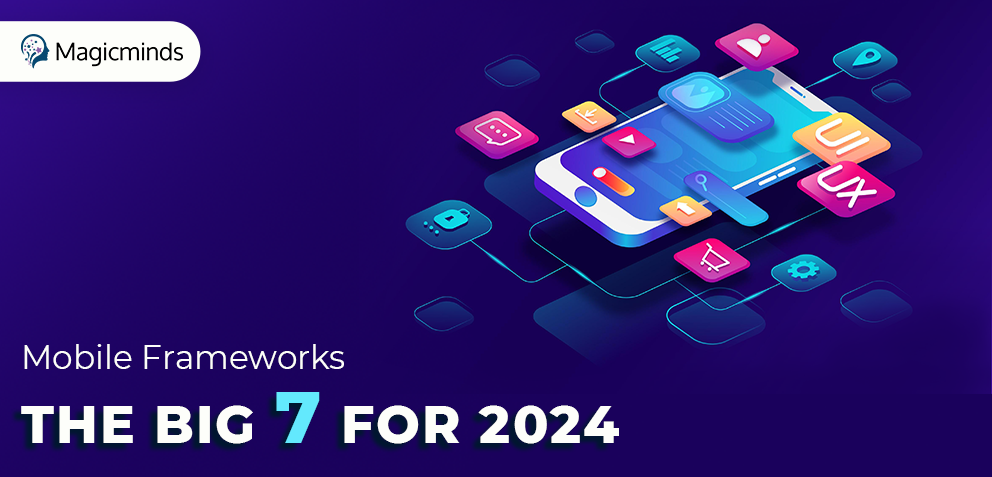
Tags
 Stay In-the-loop
Stay In-the-loop
Get fresh tech & marketing insights delivered right to your inbox.
Share this Article
Category
- .Net Developer
- Adtech
- Android App Development
- API
- App Store
- Artificial Intelligence
- Blockchain Development
- Chatbot Development
- CMS Development
- Cybersecurity
- Data Security
- Dedicated Developers
- Digital Marketing
- Ecommerce Development
- Edtech
- Fintech
- Flutter app development
- Full Stack Development
- Healthcare Tech
- Hybrid App Development
- iOS App Development
- IT Project Management
- JavaScript development
- Laravel Development
- Magento Development
- MEAN Stack Developer
- MERN Stack Developer
- Mobile App
- Mobile App Development
- Nodejs Development
- Progressive Web Application
- python development
- QA and testing
- Quality Engineering
- React Native
- SaaS
- SEO
- Shopify Development
- Software Development
- Software Outsourcing
- Staff Augmentation
- UI/UX Development
- Web analytics tools
- Wordpress Development
As organizations stamp their robust presence in the digital realm, the behind-the-scenes magic of mobile app development comes into play. At the heart of this magic? Frameworks – those dynamic platforms that supercharge the app development process. The framework comprises different components and libraries and equips developers with a strategic and systematic approach to creating mobile apps.
The demand for high-tech mobile app development is rising depending on mobile phone usage. Organizations across industries count on high-quality mobile solutions to build meaningful customer engagement and meet their expectations.
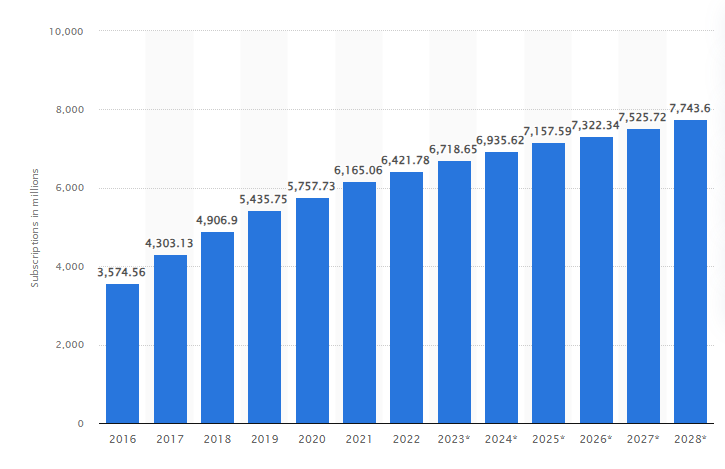
The Statista report notes that mobile app usage growth in 2016 has increased from 3.6 billion to 6.6 billion users in 2023 and is expected to reach 7.7 billion by 2027. This means the mobile user growth rate is growing by 10.4% per annum each year.
However, developing a mobile app from scratch is time-intensive, challenging, and at the same time exhausting. That is where the framework comes to a rescue. Dive into this blog as we unravel the top tools powering today’s app revolution!
Pioneering App Development: Top 7 Frameworks
Advantages of Using Mobile App Development Frameworks
Factors to Consider for Mobile App Development Frameworks
List of Top 7 Mobile App Development Frameworks
Advantages Of Using Mobile App Development Frameworks
The framework lets developers stay in the loop with the latest technology while maintaining the app’s functionalities and compatibility. In addition, the best mobile app development framework aids developers in providing real-time mobile solutions. Let’s check out what are the prime benefits of frameworks.
Time Management
The essential advantage of the framework is it saves time and resources while building a mobile app. Frameworks can alleviate businesses developing apps from scratch and hence aid developers to focus more on app development productivity.
Top-Notch Performance
As frameworks provide access to pre-set code libraries, programmers can build more enhanced, scalable, efficient, and high-tech quality apps for organizations.
User Experience
Frameworks are specifically designed to improve the user experience and support a faster, better, and smoother customer experience. Frameworks accelerate the workflow while providing user-intuitive and real-time features.
Customization
Another standout benefit of the framework is it comes with a customization feature that ensures active engagement of the customers. The built-in characteristics of frameworks enable businesses to tailor the app features such as push notifications, alert messages, and personalized messages according to the customer’s requirements.
Get Customers
A well-developed mobile app can help organizations gain more customers. Customers always look for innovative features that can meet their expectations. Enhanced mobile app features buy potential customers through social media awareness, oral promotion, and more.
Improved Revenue
Mobile apps are essential for business revenue through ads, subscriptions, and in-app purchases. These offer organizations a way to promote their products and services and get more customer attention.
Factors to Consider for Mobile App Development Frameworks
Opting for the most popular app development frameworks is daunting. However, you need not worry; we will share a few factors to consider while selecting the best mobile development framework for 2023.
- Efficient performance
- High security
- Customization
- Scalable and flexible
- User-friendly
- Better user experience
- Cost-effective
- Low Maintenance
List of Top 7 Mobile App Development Frameworks
We understand that finding a reliable mobile app development company is a challenging task, and many people are concerned about what is the most used framework for mobile app development. That is why we will highlight the top frameworks businesses can obtain and gain more revenue. So, without further ado, let’s get started.
#1 React Native
Launched in 2015, React Native is a famous open-source and cross-platform supported software framework by Facebook. It incorporates JavaScript programming language that developers widely use to build top-notch iOS and Android mobile apps efficiently.
Pros:
- React Native provides a pre-built code setup that minimizes the workload of developers.
- Faster and scalable performance
- Gateway to native app type feature and API
- High-quality UI design.
- Third-party plugins
- Cost-friendly.
- Community support.
Cons:
- Compatibility and debugging problem
- Requires Native developers only
- Low management of memory setup
- License and patent issues.
Example of Apps Built with React Native
- Airbnb
- Tesla
- Amazon Prime
- Skype
- Walmart
- Vogue World
- SoundCloud
- Bloomberg
#2 Futter

Flutter is a popular open-source and single code-hosted app development software by Google. This framework supports Dart language and enables developers to build Android, Windows, and IOS mobile apps smoothly. Besides, it comprises a debugging tool and rendering engine that helps to build API apps.
Pros:
- Hot reload for faster and smoother development and deployment
- High-tech performance and real-time solutions
- Personalized widgets
- Suitable for native app builders
Cons:
- Restrictive third-party libraries
- Difficulties in learning the programming language
- Apps are weight and large in size
- Low community support
Example of Apps Built with Flutter
- Alibaba Group
- Google Pay
- BMW
- Dream11
- eBay
- Toyota
- Google Classroom
- Google ads
- Tencent
- Hamilton
#3 Xamarin
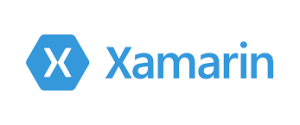
Xamarin is another favored open source and cross-platform supported mobile app development software by Microsoft. Xamarin incorporates C# and .NET languages that are widely opted by developers to build apps in Android, Windows, and IOS operating systems. With the testing and debugging capabilities, Xamarin can integrate with Microsoft Azure cloud service and develop apps.
Pros:
- Single-used code solutions across multiple platforms
- Cutting-edge debugging and testing tools
- Cross-platform facility
- Create powerful UI across the platform
- Integration with Microsoft Visual Studio boosts productivity.
- Strong community support
Cons:
- The price of Xamarin is high
- Restrictions over IOS and Android platform-built apps
- App sizes are large
- Less supportive of heavy UI/UX graphics.
Example of Apps Built with Xamarin
- Alaska Airlines
- BBC Good Food
- Ticketmaster
- Olo
- The World Bank
- Skullcandy
- PEX
- The World Bank
- Storyo
#4 Ionic

Among frameworks, Ionic is considered one of the best frameworks for mobile app development in 2023. Launched in 2013, Ionic is an open-source SDK. This framework incorporates front–end technologies such as HTML, JavaScript, CSS, and Angular that enable developers to develop Progressive Web Apps (PWA) with robust functionalities.
Pros:
- A single code-based formula across multiple platforms.
- The robust technologies help in providing top-notch performance.
- Smart UI and prototyping
- Extensive debugging tools that quicken the testing procedure.
- Strong community.
Cons:
- Lacks in providing hot reload functionality.
- Security issues.
- Ionic-developed apps are large and not cost-effective.
- Sometimes, debugging can take more time.
Example of Apps Built with Ionic
- MarketWatch
- Cryptochange
- Sworkit
- JustWatch
- DieselOn
- StockPlan Connect
#5 Native Script
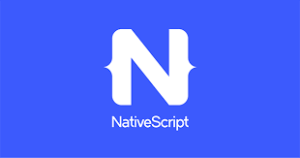
Native Script is another open-source framework by Progress. This framework includes CSS, JavaScript, Typescript, Angular, and Vue.js technologies for building high-tech mobile apps.
Pros:
- It has tailored tech features that offer top performance.
- Code reusability across IOS, Android, and web platforms.
- The learning curve is low.
- Strong community support.
Cons:
- Application testing is time-consuming
- Available UI parts are not free
- Debugging is difficult as it requires an emulator.
Example of Apps Built with Native Script:
- MyPuma
- Portable North Pole (PNP)
- Delta Airlines
- BitPoints Wallet
- Strudel
#6 Apache Cordova
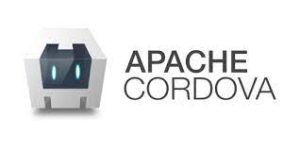
The foundation of Apache Cordova is HTML5, CSS3, and JavaScript, which supports IOS and Android operating systems and builds cross-platform apps. It enables developers to merge cameras, GPS, accelerometer, and more through different plugins.
Pros:
- Offers the facility to use the same code through multiple platforms
- Enriched debugging tools
- Strong platform support
- Customized rich UI design across different platforms.
- Cost-effective
Cons:
- Due to cross-platform function, the app’s speed is slow sometimes
- Third-party plugin issues
- Requires native development experts.
Example of Apps Built with Apache Cordova:
- Wikipedia
- HealthApp
- TripCase
- SparkChess
- DHS Programme
- Untappd
- FanReact
#7 Sencha Ext JS

Combined with Ext Js, Sencha is a JavaScript framework that creates data-enriched mobile apps. It offers smart UI components such as tap, panel, button, drag & drop, and toolbars that increase the appearance of the app features.
Pros:
- Ensures innovative and enhanced data analytics or visualizations
- The Sencha Architect quickens the app launch time in the market.
- Provides Data-Driven Document (D3) feature
- Personalized themes.
Cons:
- App page loading is slow
- Some versions are not free
- Absence of built-in tool for testing purposes.
Example of Apps Built with Sencha Ext JS
- Samsung
- NetApp
- Workday
- ESPN Fantasy Football
- Financial Times
- HBO GO
- American Cancer Society
Conclusion
As the demand for mobile apps escalates, so does the necessity for powerful tools that can transform an idea into an app with ease, speed, and finesse. As we’ve explored the 7 best app development frameworks for the future, one thing is evident – the future of mobile app development is both promising and exciting.
And for those who wish to be at the forefront of this revolution, app development companies like Magicminds stand as a beacon, ready to harness these frameworks and craft applications that resonate with tomorrow’s users. Dive into the future with the right framework and the perfect partner in Magicminds.



